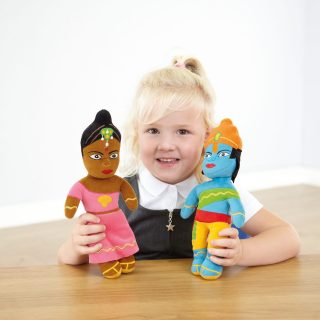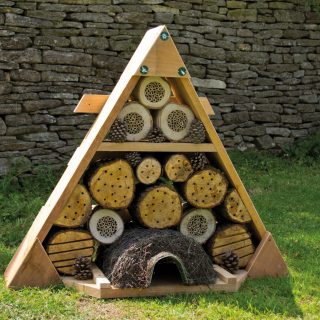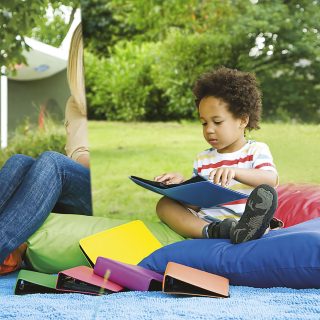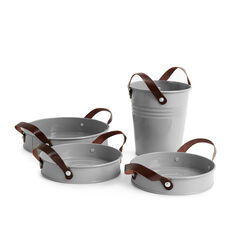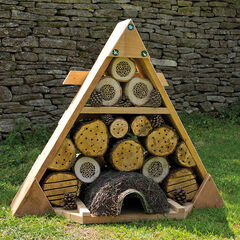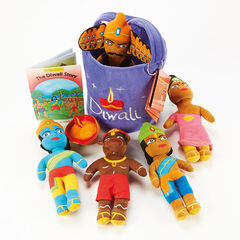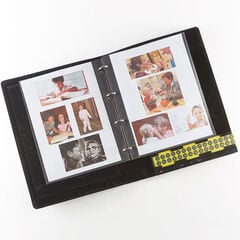This series of articles has been written by industry experts to help you to understand changes to the EYFS Framework. In this blog, Early Years consultant Alistair Bryce-Clegg looks at the Understanding the World area of the framework.
When we are thinking about children’s concepts of ‘the world’ we need to start with the familiar like home, setting and school. Then move into the locality before we think about introducing the wider world. When we are thinking about what is local and familiar to our children, we are not just thinking about places but also people and the jobs that they do that are important in day to day living.
We have a brilliant opportunity in the Early Years to allow our children the time and the space to become absorbed in the natural world around them.
Other children and familiar adults who have different cultural roots are a great way to build the idea of the world being a much bigger place than the one you see on a daily basis. In the Revised Framework, ‘People and Communities’ has now become ‘People, Culture and Communities’. This deliberate emphasis on culture reflects the diversity of the United Kingdom and of the communities we live in.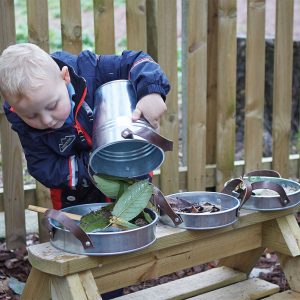
As practitioners, we need to make sure that all children have a broad understanding and appreciation of the many other cultures and their countries of origin. We have to be careful that this doesn’t become a tokenistic exercise or re-enforce stereotypes. Inuits do not live in igloos (they were only used as temporary shelters when hunting). Egypt has cities and green spaces as well as sand dunes and pyramids. Stories, songs and rhymes are a great way of celebrating different cultures whilst giving children information and an appreciation of them. Visitors and trips are also powerful ways to enable learning. It is hard to beat a real-life experience. The concept of ‘past and present’ has also been added to this section as an explicit teaching point. This can be a really difficult concept for children to get the hang of.
As practitioners, we need to make sure that all children have a broad understanding and appreciation of the many other cultures and their countries of origin.
They live very much in the ‘now’ so even the concept of them existing as a baby can be mind-blowing, never mind the thought that their parents were once babies! Past for lots of Early Years children is what happened this morning or yesterday. When we tell them stories about knights and dragons they enjoy the story, but they are unlikely to be able to realise the concept of it happening in the past.
Photo albums or scrap books that you refer to often are a great way to introduce the concept of past. They help you to move beyond yesterday to a time that was weeks, months or even years ago. Having lived events that the children can remember is a very effective model. Of course, we will still read the stories, sing the songs and make references to imagery and vocabulary of the past. This is because that will help children to become familiar with it. ‘The World’ has now become ‘The Natural World’.
Although the wording of the statements is slightly different, the content is much the same. We have a brilliant opportunity in the Early Years to allow our children the time and the space to become absorbed in the natural world around them. This can be through outdoor provision or the elements of the natural world that we foster in our indoor environment. I once worked with a setting that let a bowl of fruit rot (under a plastic cloche) so that the children could observe what would happen. The level of engagement, questioning and language usage from the children was huge. It also led to lots of other opportunities for learning. Whatever opportunities to experience nature we have got access to, or can create, we need to give children lots of chances to explore them in a range of ways.
Shop Understanding the World resources here.
Interested in finding out more about the changes to the EYFS framework?
Click on the links below to read our other articles from Alistair Bryce-Clegg …
Thank you to Early Years consultant and expert Alistair Bryce-Clegg for the content in this blog.


